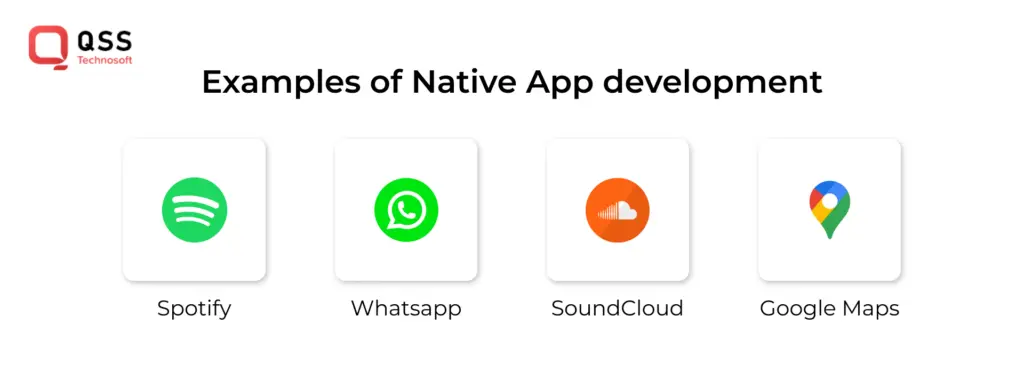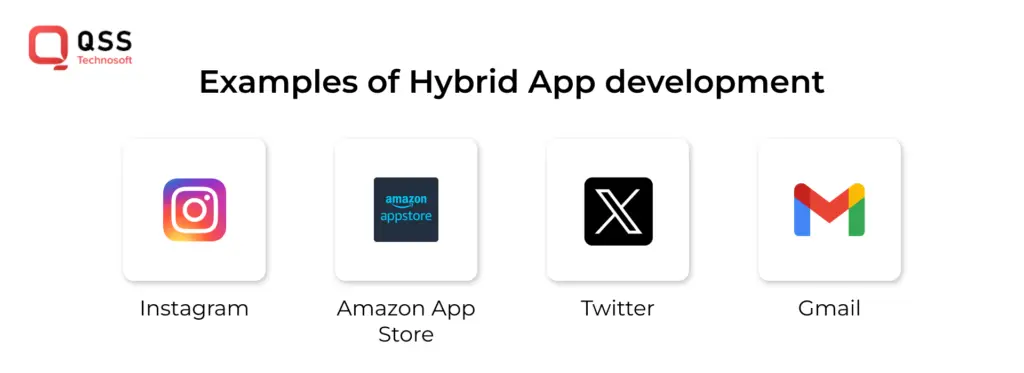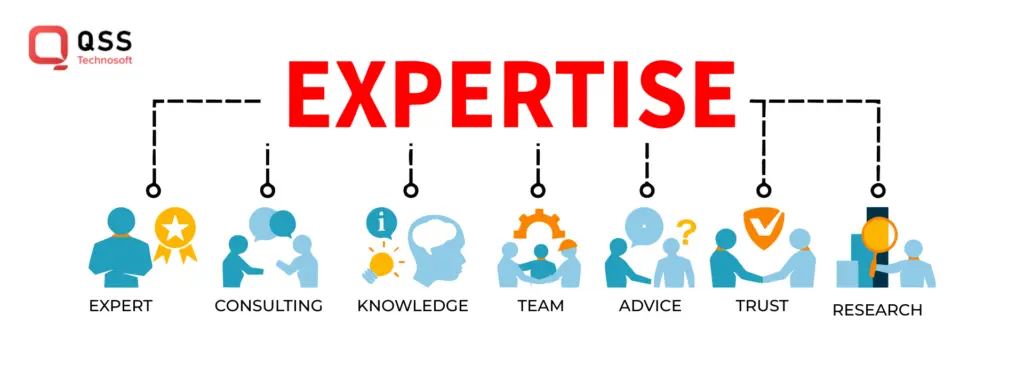While choosing the right solution for building a new mobile app, we often encounter questions like- what framework one should choose? What key factors should be considered while deciding the one? How should one align with the organizational goals, target audience, and app development framework, to achieve a brand name? These are among the most complicated questions that every individual organization comes up with while deciding on their business trajectory.
But we have got you all covered, from understanding each framework to finding the right choice for your business model, this blog will give you a comprehensive understanding of all aspects. Let’s discuss the native and hybrid app development framework in detail.
Native Mobile Application Development Framework
Native mobile app development involves developing applications for a specific operating system (OS) using the tools and languages supported by that system. For iOS, the solution is Swift or Objective-C; while for Android it is Java or Kotlin.
Let’s note some real-life examples:

Spotify: It employs native development to deliver a seamless music streaming experience with features well adapted to both iOS and Android platforms.
WhatsApp: This was developed natively for both iOS and Android to ensure fast performance and give access to device-specific features such as push notifications and camera integration.
Also Read :- PHP vs Python: Making the Right Choice for Mobile App Development
Hybrid Mobile Application Development
Hybrid app development is a combination of native and web applications. It is built using web technologies such as CSS, HTML, and JS and then packed into a native application with tools like Apache Cordova or Ionic. This enables them to run on various platforms with the help of only one codebase. Let’s note some real-life examples:

Uber: Uses a hybrid approach to have a uniform user experience despite the variation in devices and platforms while at the same time cutting down on development and maintenance costs.
Twitter: They use hybrid stuff so that they can update apps quicker and provide a similar user experience across iOS and Android.
Gmail: Google’s email service is built using Hybrid app development services to ensure great performance while still being able to make changes easily across platforms.
Difference Between Hybrid & Native Mobile App Development
Things to Keep in Mind While Choosing the Framework
Demands of the project
Assess your specific demand for the project along with your target audience. If performance and user experience are more important, native development can be a better choice.
Budgeting and Timing
Think about the budget your organization can go for and how long it will take. Hybrid Development is cost-effective in terms of money and time efficiency.
Target Market
Define who your target market is for this product or service; if you require support for multiple platforms, a hybrid option may be more effective.
Future Scalability
Give some thought to the scalability of the app in the future. Native apps might provide superior performance as the complexity of the app increases.
Development Speed
Evaluate the project timeline carefully and choose a time when you likely would launch your app in the market. This will assist in deciding the framework you should opt for. For instance, if you want a quick launch of an app in the market, cross-platform or hybrid would be the right fit, as it allows reusability of codes across different platforms.
User Experience
User experience is the ultimate game changer. Look for a framework that provides exceptional user experience and captivates your target audience.
Also Read:- How to Develop a Mobile App like Hinge Dating App?
How QSS Technosoft can Assist you?
QSS Technosoft is one of the leading App Development Companies around the world. Our expert developers excel in building state-of-the-art applications. Whether developing hybrid, native, or cross-platform apps, our team has years of expertise.

Here’s how We Can Help you:
Expert Consultation:
We have a team of seasoned experts who are ready to serve you round the clock with all your queries. We believe in providing professional advice to assist you in selecting the best development approach for your project based on your organizational goals, project requirements, and target audience.
Custom Development:
Delivery of personalized software design services for native or hybrid apps aimed at high-speed performance and user satisfaction.
End-to-End Services:
We don’t just leave our customers after the app launch, rather we stay with you throughout. Ensuring end-to-end services from concept, through development into deployment and maintenance, leading smooth process and a successful launch.
Conclusion
Choosing the right app development framework is a task that impacts organizational performance, costs, and success of your application. Thus, it requires a thorough assessment and analysis of project requirements and market trends, to make an informed choice. QSS Technosoft’s expertise in delivering exceptional app development services making sure you create a great market presence.
So, if you are looking forward to bringing a new application to the market, book a consultation with us and get exceptional solutions for your next project.
We are proud to mention that our work has been recognized by leading B2B reviews and research platforms like GoodFirms, Clutch, MirrorView, and many more.
FAQs
Q. What is the difference in performance between native and hybrid apps?
A. The performance of native applications usually surpasses that of hybrid apps because they are customized for the specific hardware and software found on the platform. Hybrid applications may continue to have performance restrictions due to an additional layer between the code and the device’s native capabilities, even though they have improved in performance with advances like React Native and Flutter.
Q. How do development costs and timeframes compare between native and hybrid approaches?
A. Developing native apps often requires separate teams or expertise for each platform, potentially increasing costs and development time. On the other hand, by allowing developers to write once and deploy on multiple platforms, hybrid apps can offer cost and timeframe advantages, though this may necessitate more testing as well as optimization.
Q.Which approach is better for my project: native or hybrid app development services?
A. Various factors such as project specifications, budget, timeline, desired performance level, and user experience goals determine whether one should choose a native or hybrid app development services. In the context of complex applications that need high-performance levels concerning target platforms, feature selection should be drawn towards Native Development. Simpler applications or those that are aimed at many platforms might profit from Hybrid Development.


What to Choose Between Native and Hybrid App Development?